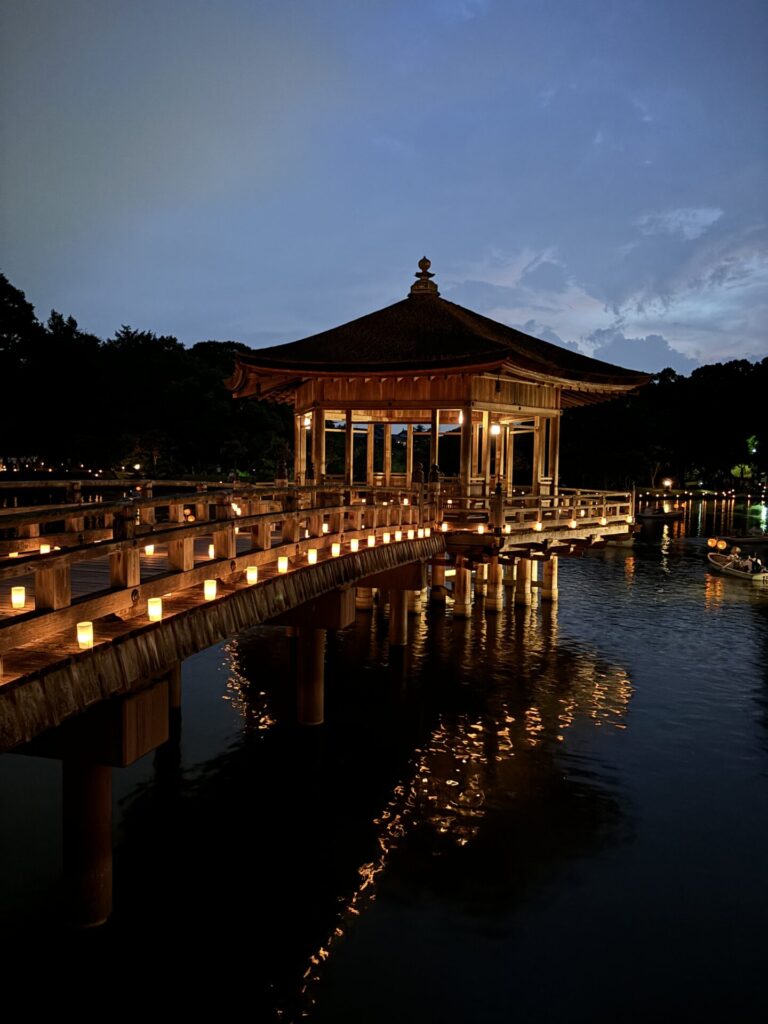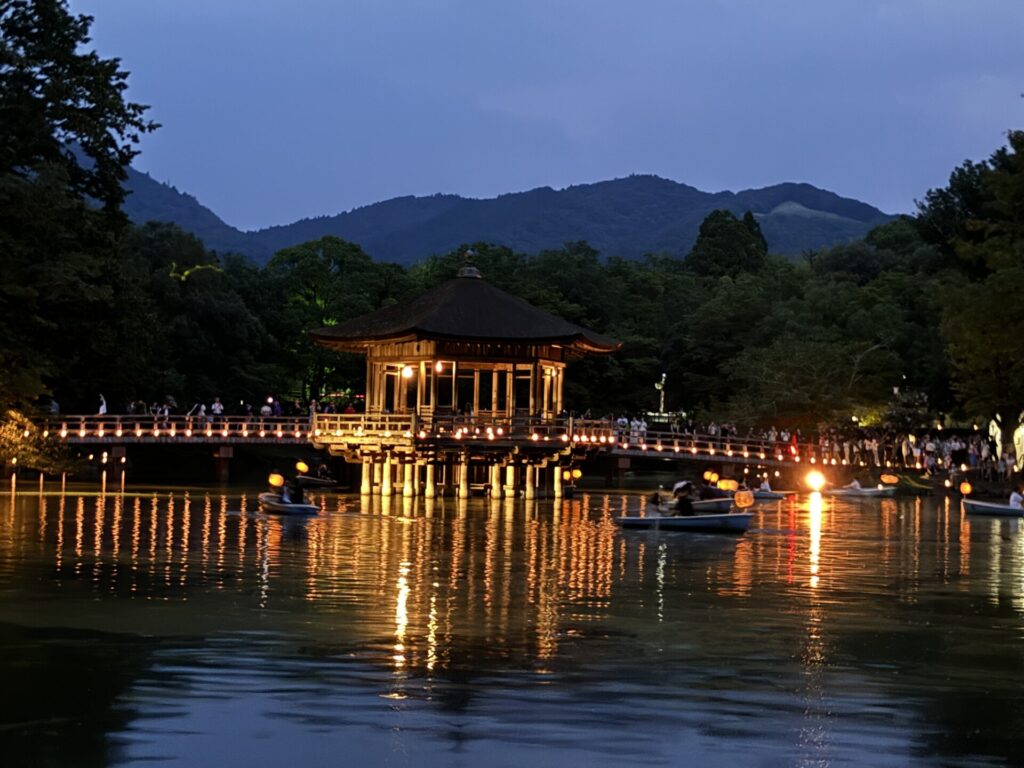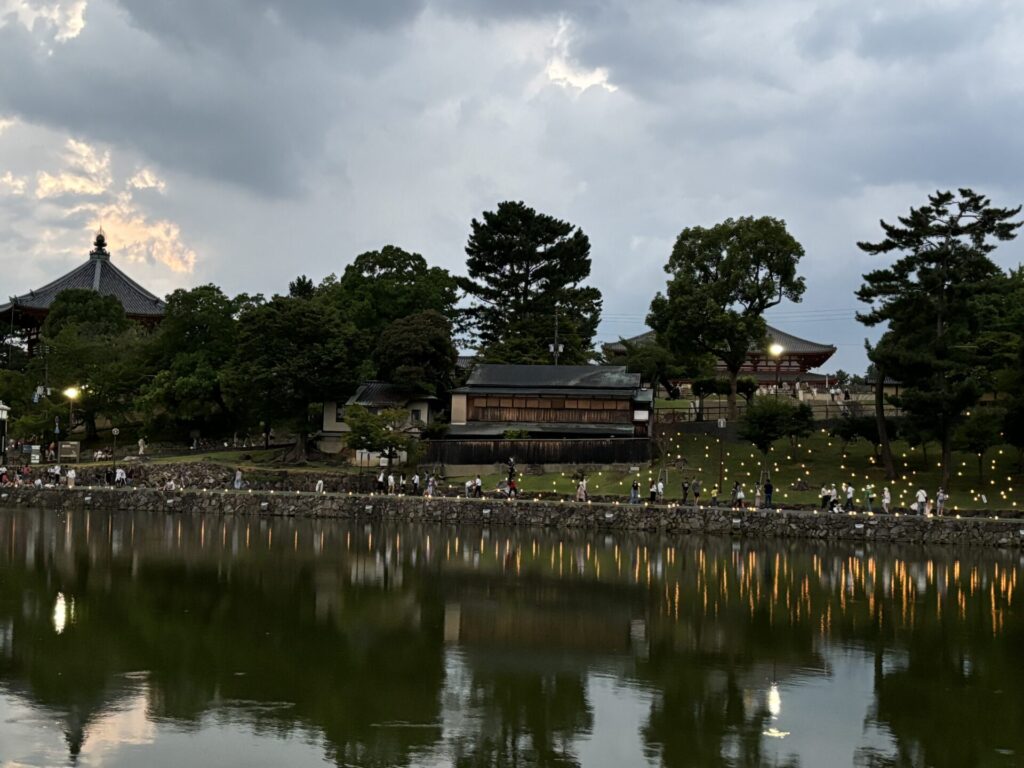奈良で毎年夏に10日間だけ開催されるお祭り、燈花会では、ろうそくの灯りで1300年の古都がライトアップされます。
At the Tōkae燈花会 festival in Nara, every summer for just ten days,the ancient capital of 1300 years is illuminated with the light of candles.


浮見堂 floating temple
数千の燈火が揺らめく中、水面に建つお堂と、その下に漂う小舟。思わず息を飲むような光景です。1300年前の宮廷の人たちが楽しんだ宴もこのような光景だったのかもしれません。
In the midst of thousands of flickering lanterns, there is a temple standing on the water’s surface and small boats drifting beneath it. It is a breathtaking. Perhaps this was the kind of scene enjoyed by the courtiers of 1300 years ago.
天の海に雲の波立ち月の船星の林に漕ぎ隠る見ゆ 柿本人麿
柿本人麿が和歌の中で想像した情景も、このような風景だったかもしれません。
About 1,300 years ago, the poet Kakinomoto no Hitomaro柿本人麿 left a waka that describes a scene where
‘waves of clouds rise in the sea of the sky, and a boat of the moon is seen drifting and hiding among a forest of stars.’
This may have been the kind of scenery that Hitomaro imagined.

猿沢池 Sarusawa Pond
古代の日本の宮廷には、采女という女官がいました。采女とは、各地から選ばれた容姿の良い女性で、天皇の身の回りを世話する女官として都に集められました。猿沢の池には、采女にまつわる伝説があります。ある采女が天皇に恋をし、叶わぬ恋を嘆いて猿沢池に入水しました。天皇はそのことを悲しみ、猿沢池で和歌を詠んだとされています。また、猿沢池には龍神が現れるとも言われ、名僧明恵が唐に行くのを止めたという伝説もあります。
In ancient Japanese courts, there was a official known as the “uneme” (采女). The uneme were beautiful women selected from various regions to serve the Emperor and were gathered in the capital. There is a tale associated with Sarusawa Pond (猿沢池) involving a uneme. According to the story, a uneme fell in love with the Emperor and, mourning her unfulfilled love, drowned herself in Sarusawa Pond. The Emperor was deeply saddened by this and composed a poem at the pond in her memory.
It is said that a dragon god appears in Sarusawa Pond. There is also a legend that the renowned monk Myoe (明恵) was prevented from traveling to China by the dragon god in Sarusawa Pond.


コメント